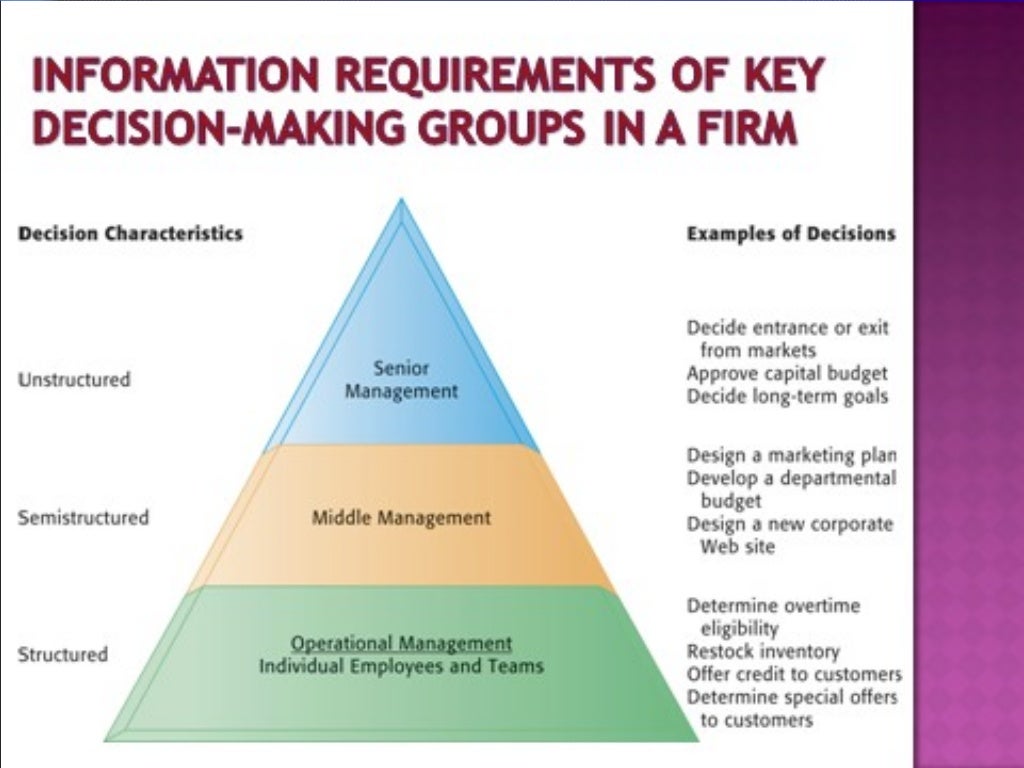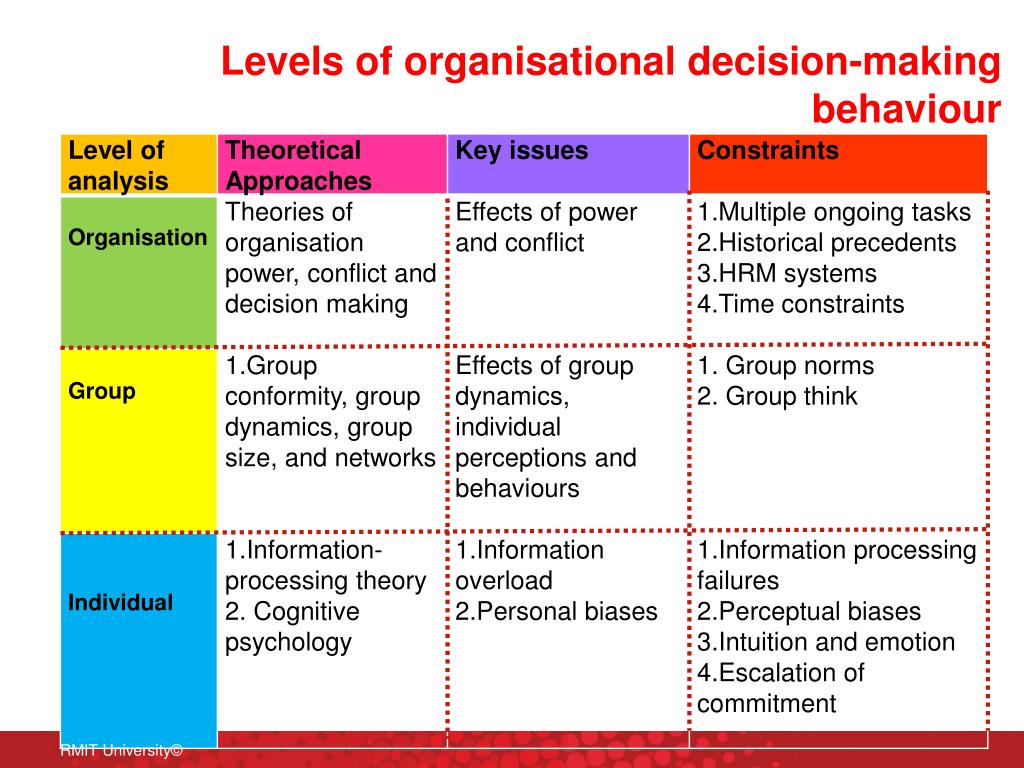

- Organizational behavior and human decision processes how to#
- Organizational behavior and human decision processes serial number#
It is used for the recognition of journals, newspapers, periodicals, and magazines in all kind of forms, be it print-media or electronic.

Organizational behavior and human decision processes serial number#
The ISSN of Organizational Behavior and Human Decision Processes journal is 07495978, 10959920.Īn International Standard Serial Number (ISSN) is a unique code of 8 digits. Promises and lies: Restoring violated trust pp. Corresponding author at: Organizational Behavior Department, Catlica Lisbon School of Business & Economics, Universidade Catlica Portuguesa, Palma de Cima, 1649-023 Lisboa, Portugal.

The best quartile for this journal is Q1. Organizational Behavior and Human Decision Processes citation style guide with bibliography and in-text referencing examples: Journal articles Books. 'The Highest Form of Intelligence: Sarcasm Increases Creativity for Both Expressers and Recipients.' Organizational Behavior and Human Decision Processes 131 (November 2015): 162177. Erratum to 'Role of time in self-prediction of behavior' Organizational Behavior and Human Decision Processes 100 (2006) 160-176 pp. SJR acts as an alternative to the Journal Impact Factor (or an average number of citations received in last 2 years). It considers the number of citations received by a journal and the importance of the journals from where these citations come. SCImago Journal Rank is an indicator, which measures the scientific influence of journals. Organizational Behavior and Human Decision Processes publishes fundamental research in organizational behavior, organizational psychology, and human cognition, judgment, and decision-making. The overall rank of Organizational Behavior and Human Decision Processes is 654.Īccording to SCImago Journal Rank (SJR), this journal is ranked 2.834. Organizational Behavior and Human Decision Processes is a journal covering the technologies/fields/categories related to Applied Psychology (Q1) Organizational Behavior and Human Resource Management (Q1). In support of this asser-tion, Bell (1997) noted, ‘‘At one time or another, almost every human activity has been done ritually or made part of a ritual (p. This has there positioned Theory of Reasoned Action as underutilized even though it is a very strong theory to support Information Systems studies.About Organizational Behavior and Human Decision Processes determine that a particular type of behavior is or is not an instance of a ritual (Lienard & Boyer, 2006, p. Even though this theory can be applied in studying a number of research cases in Information Systems discourse, it has not been extensively used, and in cases where it has been used, it has mainly set the stage for other theories such as Technology Acceptance Model, Unified Theory of Acceptance and Utilization of Technology and Innovation Diffusion Theory among others. The theory resulted from attitude research using the Expectancy Value Models.

Theory of Reasoned Action was formulated by social psychologist. Her research is organized around four conceptual themes that involve understanding 1) the dynamic nature of moral decision-making and 2) how individuals psychologically experience everyday moral encounters, 3) charitable giving and receiving with an interest in how the delivery of aid impacts recipients, and 4) the complexity and challenges of m. Information Systems, Mobile phones, TAM, Theory of Reasoned Action, TRA Theoretical and Practical Implications of Applying Theory of Reasoned Action in an Information Systems StudyĪUTHORS: Odoyo Collins Otieno, Samuel Liyayla, Benson Charles Odongo
Organizational behavior and human decision processes how to#
History: 1985-ongoing Journal Hompage: Link How to Get Published. Organizational Behavior and Human Decision Processes, 50, 179-221. assistant professor of Management in the School of Business, got accepted for publication in Organizational Behavior and Human Decision Processes. Basic Journal Info Country Journal ISSN: 07495978, 10959920 Publisher: Elsevier Inc. Because a human being is limited in the amount of information he or she can process, when a complex decision needs to be made, he or she will reduce the.


 0 kommentar(er)
0 kommentar(er)
